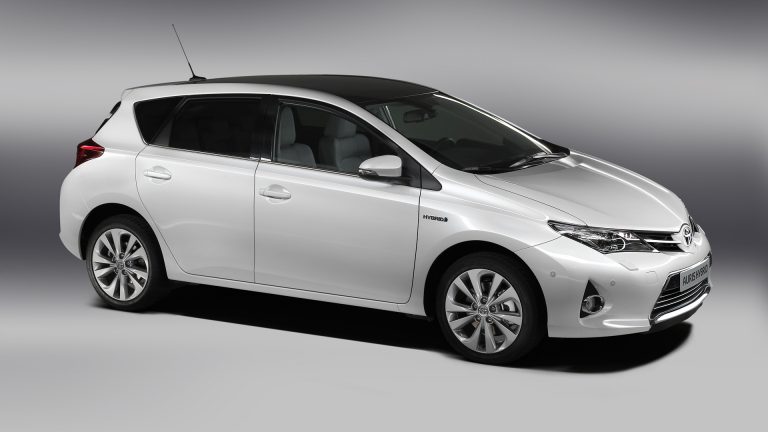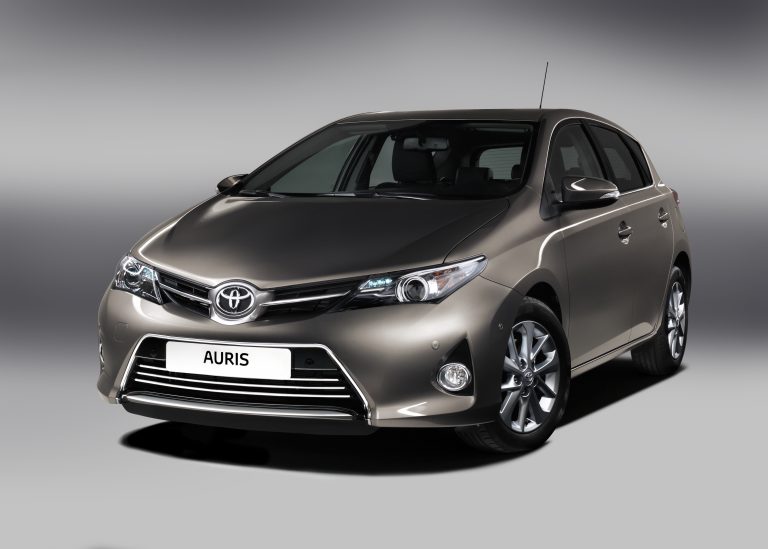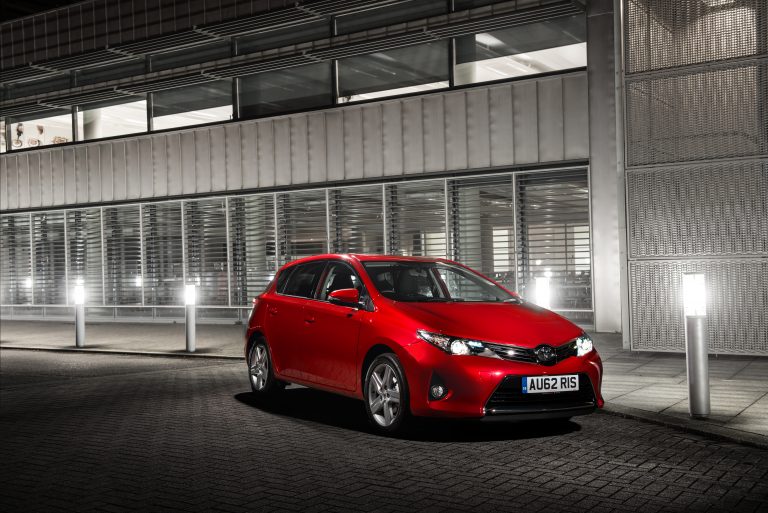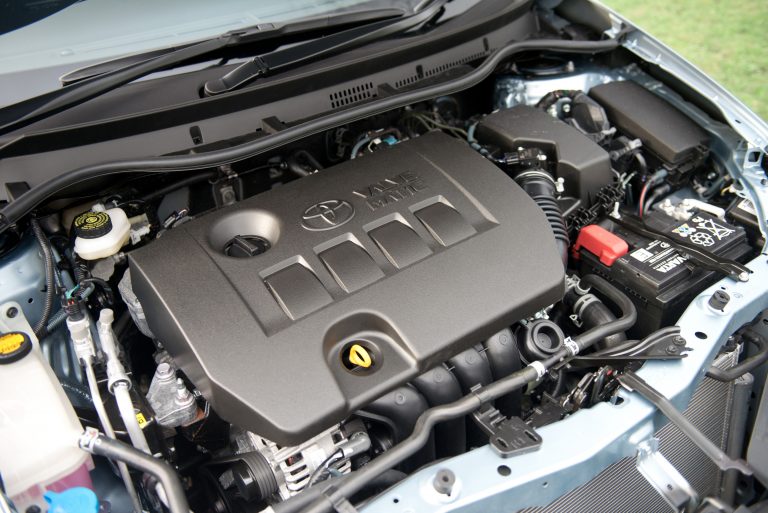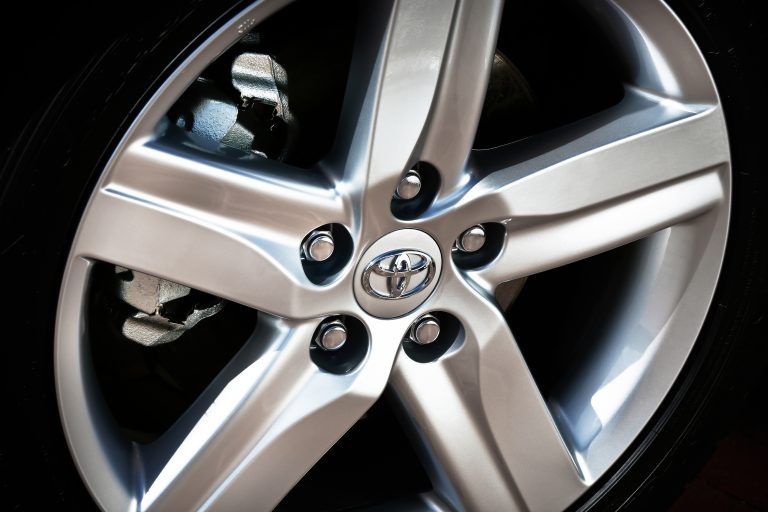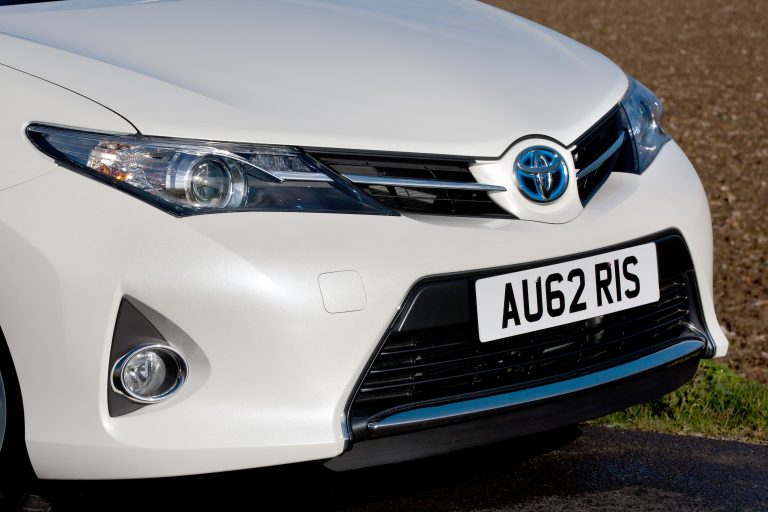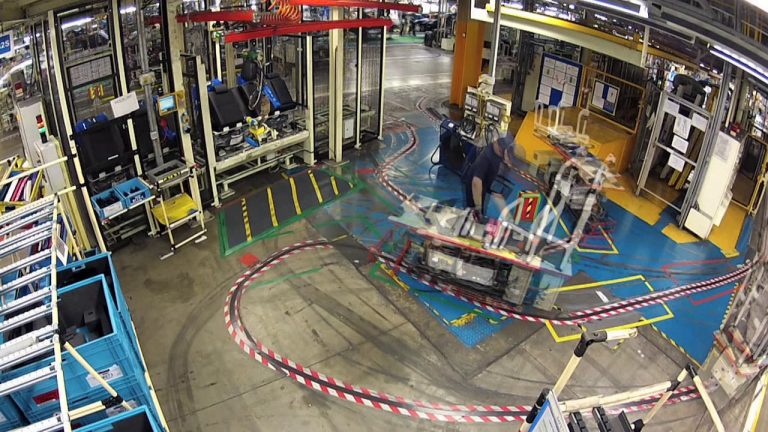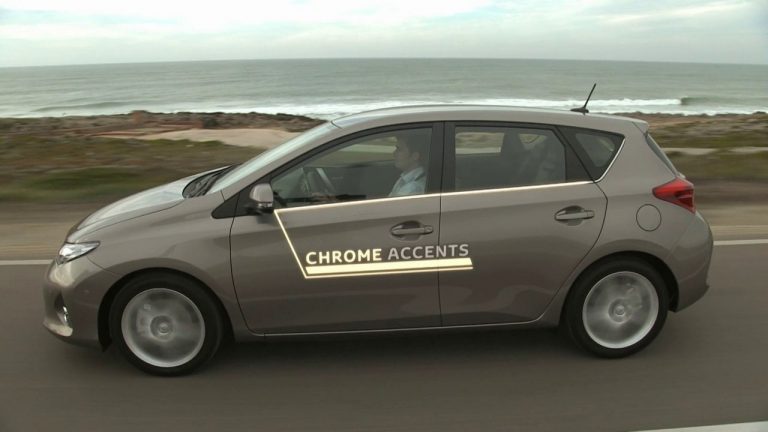New Toyota Auris: Low Running Costs, Low Tax And Lasting Value
KEY POINTS
- New Auris to deliver significantly improved residual values and more competitive total ownership costs
- Potential four-figure savings for businesses and company car drivers compared to key rival models
- Top-of-the-range Auris Hybrid Excel (CO2 emissions of 91g/km) more cost-effective for business operators and drivers than competitor mid-range diesel models
- Auris Hybrid Icon delivers better ownership cost performance than diesel rivals with smaller and less powerful engines
- Low costs founded on all-round efficiency and low emissions of Toyota powertrain technologies, supported by build quality, durability and reliability
The appeal of new Auris’s sharp looks and driving dynamics is matched by competitively low running and maintenance costs, low tax and lasting value that make it an all-round compelling choice.
The British-built hatchback is attracting significantly higher residual values than its predecessor, while across the board – full hybrid, petrol and diesel powertrains – improvements have been made in fuel efficiency and emissions that mean less money spent at the pumps and lower tax bills.
These factors combine with Toyota’s fundamental product quality, reliability and durability, plus sharp contemporary styling and high equipment specifications to make new Auris a strong contender in a hard-fought market.
For example, the top-of-the-range Auris Hybrid Excel (91g/km CO2 emissions and 72.4mpg combined cycle fuel economy) will cost less for a company to offer on its fleet than a more modestly specified, mid-grade Focus, Astra or Golf. For the company car driver, the personal savings are considerable, too: more than £2,000 compared to a Focus with similar power output and more than £1,500 compared to a Golf over three years and 60,000 miles. The mid-grade Auris Hybrid Icon is a similarly attractive proposition, with total driver savings of up to £1,600 over the same timescale compared to key rivals – including low output eco-diesels.
Toyota has re-engineered the 1.4 D-4D diesel engine in Auris and added a Stop & Start system to increase efficiency. As a result, the Icon model produces 103g/km of CO2 and posts official combined cycle fuel consumption of 72.4mpg. This contributes towards a better pence-per-mile cost* to businesses for the Toyota than the Focus, Astra, Golf and Hyundai i30 (reference KWIK carcost data).
Where residual values are concerned,CAP predicts a 34 per cent rating for the new Auris Hybrid Excel, an improvement of five points on the current T Spirit model, and a 35.2 per cent RV for the Auris 1.4 D-4D Icon, a rise of more than six percentage points compared to the current Auris TR.
Ewan Shepherd, Toyota General Manager Fleet and Remarketing, said: “The economic climate dictates that businesses have to scrutinise every aspect of their costs. Looking at new Auris’s cost profile there are significant financial advantages to be gained for both fleet operators and business/company car drivers by choosing Auris.
“Auris continues to deliver the most competitive ownership costs, which makes it a rational choice for business, but the new model introduces improved design and driving dynamics that give it more emotional appeal, too. As a key element in our strategy to provide customers with more desirable and competitive products, we believe it will have a particularly strong appeal to small and medium-size businesses.”
Competitor comparisons
These tables demonstrate how the figures for new Auris stack up against some of its main market rivals for businesses and company car drivers. In the first table, the Auris Hybrid Icon demonstrates its value and cost effectiveness again lower powered diesel models; in the second, the cost benefits of the top-of-the-range Auris Hybrid Excel can be seen as competitive when measured against other manufacturers’ mid-range models.
The independent data is provided by KWIKcarcost, correct at1 November 2012 and calculated on a three-year/60,000-mile term.
Auris Hybrid Icon
| MODEL |
Toyota Auris 1.8 VVT-I Hybrid Icon |
Ford Focus 1.6 TDCi 115 Zetec |
Honda Civic 1.6i D-TEC 120 SE |
Hyundai i30 Blue Drive 1.6 CRDi 110 |
Vauxhall Astra 1.3 CDTi ecoFLEX 95 |
Volkswagen Golf 1.6 TDI BlueMotion Tech 105 |
| P11D value |
£19,940 |
£18,740 |
£19,345 |
£18,940 |
£20,685 |
£20,445 |
| Fuel consumption (combined mpg) |
74.3 |
67.3 |
78.5 |
74.3 |
68.9 |
74.3 |
| CO2 emissions (g/km) |
87 |
109 |
94 |
100 |
109 |
99 |
|
Company costs over three years and 60,000 miles |
||||||
| Pence-per-mile |
43.22 |
44.84 |
40.91 |
43.09 |
48.5 |
42.05 |
| 3-year costs |
£25,934 |
£26,901 |
£24,545 |
£25,856 |
£29,101 |
£25,229 |
|
Driver costs over three years and 60,000 miles |
||||||
| Tax bands 2012 – 2014 |
10, 10, 11 |
15, 16, 17 |
13,13,14 |
14,15,16 |
15,16,17 |
13,14,15 |
| BIK (40% tax payer) |
£2,473 |
£3,598 |
£3,095 |
£3,409 |
£3,972 |
£3,435 |
| Private fuel (10k miles per annum) |
£837 |
£966 |
£829 |
£875 |
£944 |
£875 |
| Driver personal costs +/- vs Auris |
– |
+ £1,254 |
+£614 |
+£974 |
+£1,606 |
+£1,000 |
Auris Hybrid Excel
| MODEL |
Toyota Auris 1.8 VVT-I Hybrid Excel |
Ford Focus 2.0 TDCi 140 Zetec |
Honda Civic 1.6i D-TEC 150 SE |
Hyundai i30 1.6 CRDi Blue Drive 128 Style |
Vauxhall Astra 1.7 CDTi 130 SRi |
Volkswagen Golf 2.0 TDI BlueMotion Tech 150 |
| P11D value |
£21,690 |
£19,740 |
£20,245 |
£19,240 |
£21,715 |
£21,960 |
| Fuel consumption (combined mpg) |
72.4 |
56.5 |
67.3 |
74.3 |
61.4 |
68.9 |
| CO2 emissions (g/km) |
91 |
129 |
110 |
100 |
122 |
106 |
|
Company costs over three years and 60,000 miles |
||||||
| Pence-per-mile |
46.54 |
49.99 |
45.11 |
43.64 |
53.66 |
46.88 |
| 3-year costs |
£27,925 |
£29,992 |
£27,063 |
£26,185 |
£32,194 |
£28,129 |
|
Driver costs over three years and 60,000 miles |
||||||
| Tax bands 2012 – 2014 |
10, 10, 11 |
19, 20, 21 |
16, 17, 18 |
14,15,16 |
18, 19, 20 |
15, 16, 17 |
| BIK (40% tax payer) |
£2,690 |
£4,738 |
£4,130 |
£3,463 |
£4,951 |
£4,216 |
| Private fuel (10k miles per annum) |
£858 |
£1,151 |
£966 |
£875 |
£1,059 |
£944 |
| Driver personal costs +/- vs Auris |
– |
+£2,341 |
+£1,548 |
+£790 |
+£2,462 |
+£1,612 |
* Pence-per-mile calculation includes depreciation, service, maintenance and repair charges, fuel, insurance, finance and National Insurance costs over three years and 60,000 miles.
ENDS

